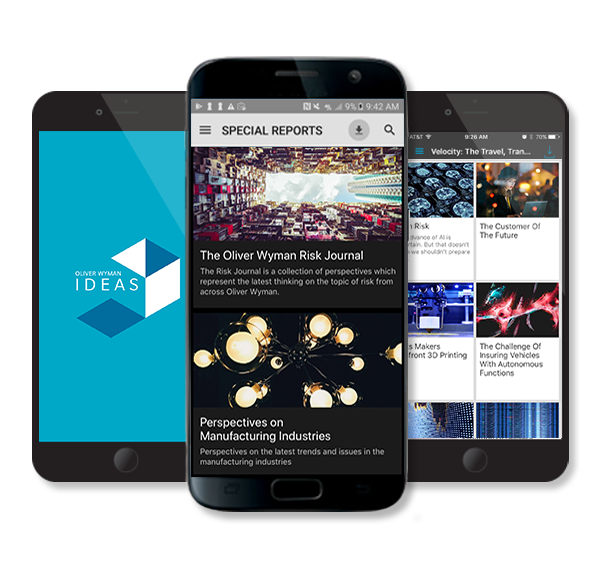By Marianne Connault, Bruno Despujol and Simon Glynn
The article appeared on Forbes on September 17, 2019 .
The 21st century traveler is a different animal than the one moving around the planet only a quarter century ago. Imagine telling someone in 1995 that vacations would be planned around staying in a stranger’s apartment rather than a hotel, or that passengers would get out of cabs without handing the driver cash, or that people would ask robots for restaurant choices, flight options, and directions.
Today’s consumers have more information at their fingertips, day and night, than most travel agents had in the 1990s. It shouldn’t be surprising that these super-informed travelers are unwilling to put up with 20th century inefficiencies and limitations when making reservations, picking up rental cars, checking into hotels, or boarding flights. With so many options, so much flexibility, and increasingly high expectations, they’re harder to please and always wondering what else a provider can offer.
Trip-planning for a typical traveler involves 50 online searches 38 site visits and 12 reviews
As a result, the typical traveler dives into a complex online search maze to find the best or the cheapest deals — an effort that involves, on average, 50 online searches, 38 site visits, and a dozen reviews. The overwhelming number of choices often leads to indecision, with more than 80 percent pulling out of pre-purchase bookings — a higher rate than for retail, finance, and fashion.
This super-charged yet fickle consumer is putting pressure on the travel industry to step up service and move to technology that can provide the seamless experience so often talked about for travel but only occasionally realized. Here are five attributes that make this picky consumer so demanding:
One
Travelers expect seamless experiences with nonstop connectivity. Consumers today are simply not willing to disengage from the rest of their lives — even for a few minutes — unless by choice. When traveling, they depend on the internet’s 24/7 stream of data to prevent scheduling hiccups, track itineraries, find destinations, make bookings, and keep the experience as frictionless as possible. That means, at a minimum, travel modes must offer reliable connectivity that enables consumers to use their devices to do anything from anywhere. With the imminent arrival of 5G wireless and Li-Fi, which uses the light spectrum from LED lights, the demand will only get louder and more insistent.
To satisfy the quest for seamless travel, companies are creating platforms and apps that provide their customers with up-to-the-minute reports on the progress of their trip, making real-time accuracy particularly important to today’s consumer. According to a 2018 study on trends in navigation apps, 70 percent of that market is based on the ability to access real-time, end-to-end information.
But what consumers want is one-stop shopping for travel. Eventually, given the competition for real estate on mobile devices, that will lead travelers to winnow down once they find an app that lets them do everything they want by swiping without searching.
Two
Travelers want on-demand everything. The pace of life is so much faster these days, thanks to connectivity and the internet. Travelers, and people in general, are much less willing to wait for anything. With one click, they can shop, bank, order food, pick a restaurant and make reservations, set appointments, buy tickets, communicate with friends, and be entertained. So why can’t they handle travel needs with the same expediency?
When it comes to air travel, for instance, statistics show the significant role on-time performance plays in a consumer’s choice of airlines. There’s a 90 percent direct correlation between on-time performance and satisfaction, according to a 2018 passenger survey by the International Air Transport Association.
Three
Travelers depend on exponential intelligence. One of the most defining characteristics of the modern traveler is his or her comfort with technology, depending on it to plan vacations and business trips and complete transactions. Almost overnight, reliance on artificial intelligence has become a way of life for people. And whether digital natives or not, they don’t mind interacting with computers — as long as their questions are answered easily and correctly.
One clear example of the role that advanced technology plays in travel these days is the openness of consumers to synthetic realities. Travelers want a taste of what they are buying before they commit, and what better way to experience a future vacation than via virtual or augmented reality. Travel providers report consistent upticks in bookings and engagement following this kind of immersive experience.
Four
Travelers live a transparent existence. Because technology is in their comfort zone, travelers are increasingly willing to share data. Even with baby boomers, who appear to be the most protective of their data, more than half are willing to share for a promise of something in return, such as a discount or advance information about sales or availability.
Travelers also are willing to share their experiences — good and bad. A 2017 report by Jetsetter Magazine revealed that 60 percent of travelers share experiences on social media while on a trip and a stunning 93 percent post reviews about vacations. As a result, social media is becoming more influential in decisions. Time and time again, major brands report the ability to increase revenue based on positive recommendations from users on social media.
Five
Travelers want you to get them.Part of the reason travelers are so willing to share personal data is they see their trips and travel choices as reflections of who they are. That means to engage a customer, travel companies need to get to know that person. Fortunately, there are petabytes of data flowing every year into hotels, airlines, rental car agencies, cruise lines, and train operators that could offer insight. Unfortunately, many providers haven’t figured out how to use these treasure troves.
For today’s traveler, it’s not only about making it personal, but also making it timely. Don’t pester travelers several weeks before a flight about a possible upgrade deal. Studies show providers will get the best response a few hours before the flight when the customer is thinking about it.
Expect these trends to become only more pronounced, producing a traveler who is only satisfied with an integrated, personalized, AI-assisted experience they can share on social media. And make sure not to forget a little augmented reality to help them catch an element they otherwise might miss while on the trip.
Connect daily
What does all this mean for the travel industry? It makes the job of breaking through the noise much tougher and closing transactions even harder.
In this environment, frequent interaction — defined as 20 to 30 times a month — is a necessity. Two-thirds of travel companies don’t reach out nearly enough to customers, making most marketing efforts ineffective.
Loyalty programs and apps are probably the best vehicles for maintaining contact. In both cases, a customer’s willingness to sign up with a provider or download an app indicates an openness to hearing from that organization. But don’t leave it there. Today’s traveler needs to be wooed and reminded why this company should be on speed dial.





.jpg)





